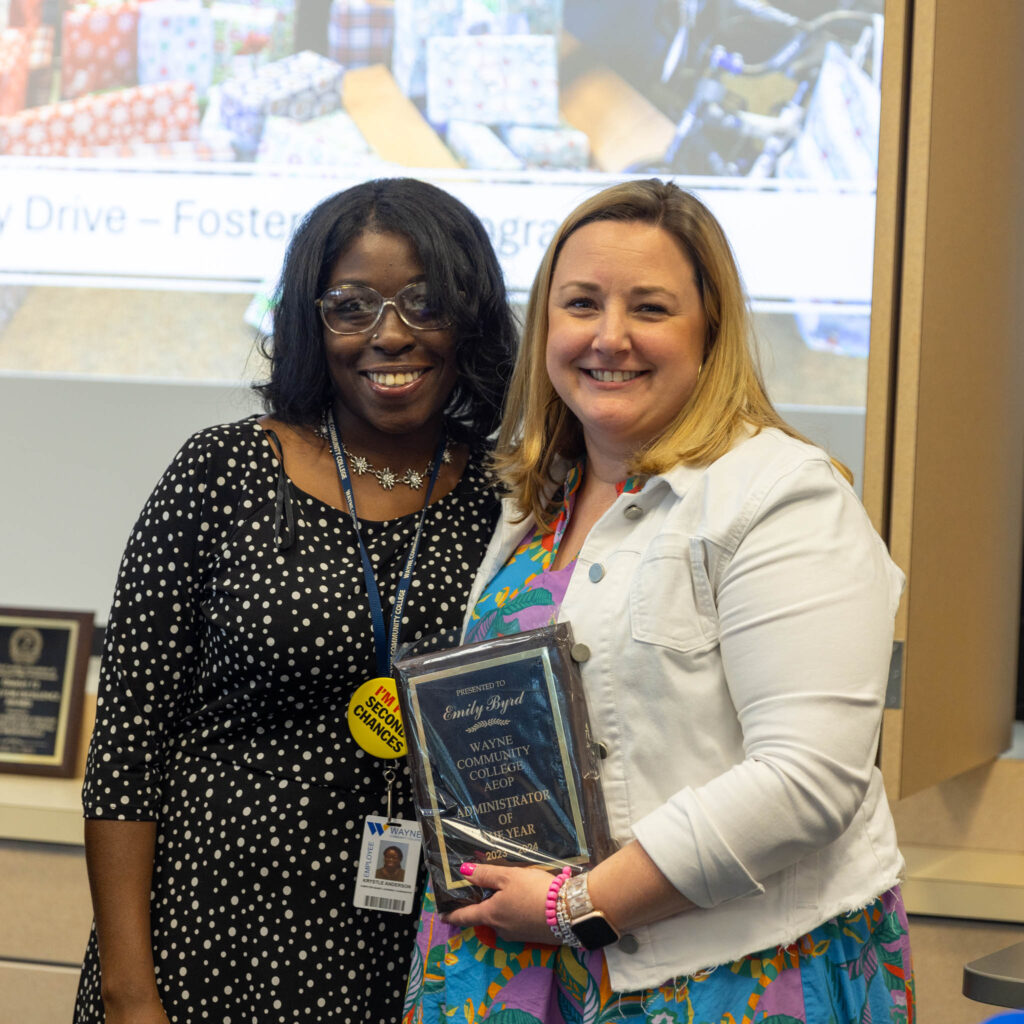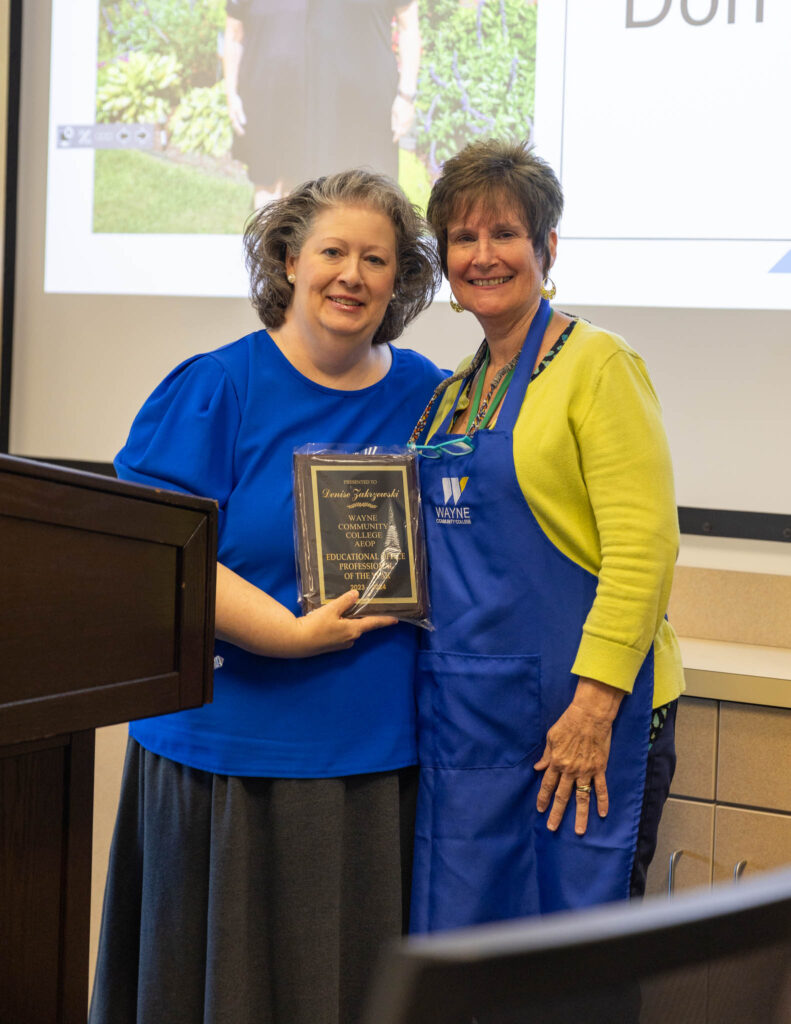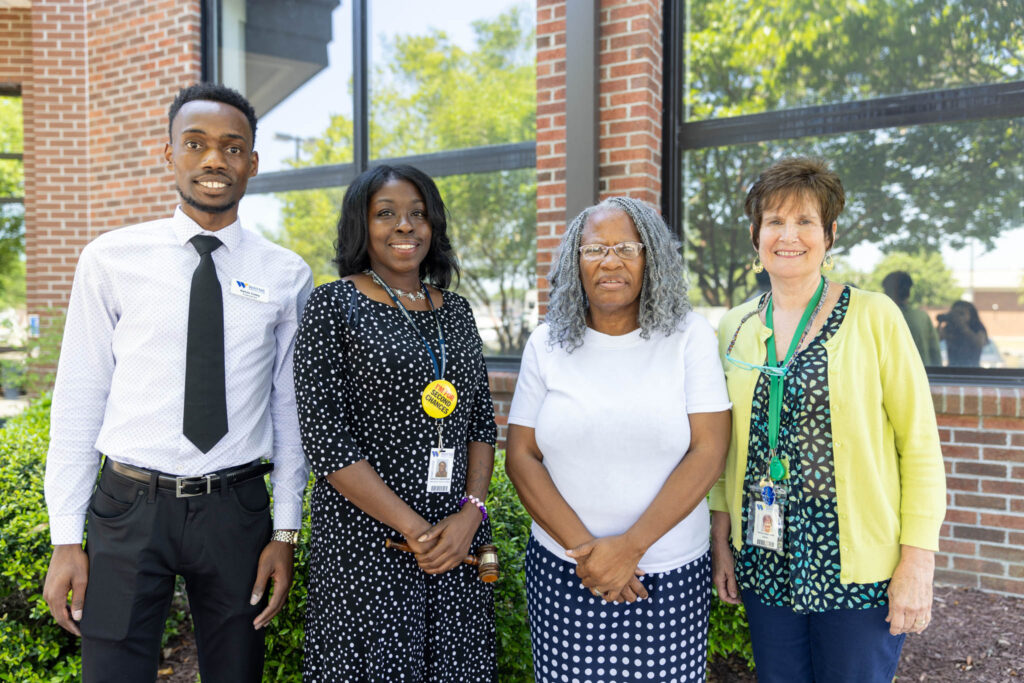The Wayne Community College Association of Educational Office Professionals (WCCAEOP) recognized its administrator and professional of the year and installed new officers at its annual luncheon.
Executive Director of the Foundation of WCC Emily Byrd was named Administrator of the Year for 2024.

Byrd was described by nominators as “a positive, caring, encouraging, committed, and willing team player.” She has been a WCCAEOP member for 12 years and was honored for her leadership, commitment to student success, and support of the College.
Dental Administrative Assistant Denise Zakrzewski is the 2024 Educational Office Professional of the Year.

Zakrzewski’s nominator described her as “dependable, efficient, and unfailingly punctual,” as well as always projecting a warm attitude to students and coworkers. She serves as chair of the WCCAEOP Audit Committee and has been the district auditor for the association on the state level.
The 2024–2025 officers of WCCAEOP were installed at the luncheon and are as follows:
President: Krystle Anderson, computer based learning coordinator
Vice President: Bea Birdine, student activities office assistant
Secretary: Kelvin Coley, financial aid specialist
Treasurer: Denise Zakrzewski, dental administrative assistant

WCCAEOP is a member of the NCAEOP. The NCAEOP is a support organization for educational office personnel and administrators. It provides professional development opportunities, insurance, and scholarships to members as well as a legislative platform to promote input into all educational matters in the state.
About Wayne Community College
Wayne Community College is a public, learning-centered institution with an open-door admission policy located in Goldsboro, N.C. As it works to develop a highly skilled and competitive workforce, the college serves around 10,000 individuals annually as well as businesses, industry, and community organizations with high quality, affordable, accessible learning opportunities, including more than 150 college credit programs. WCC’s mission is to meet the educational, training, and cultural needs of the communities it serves.

